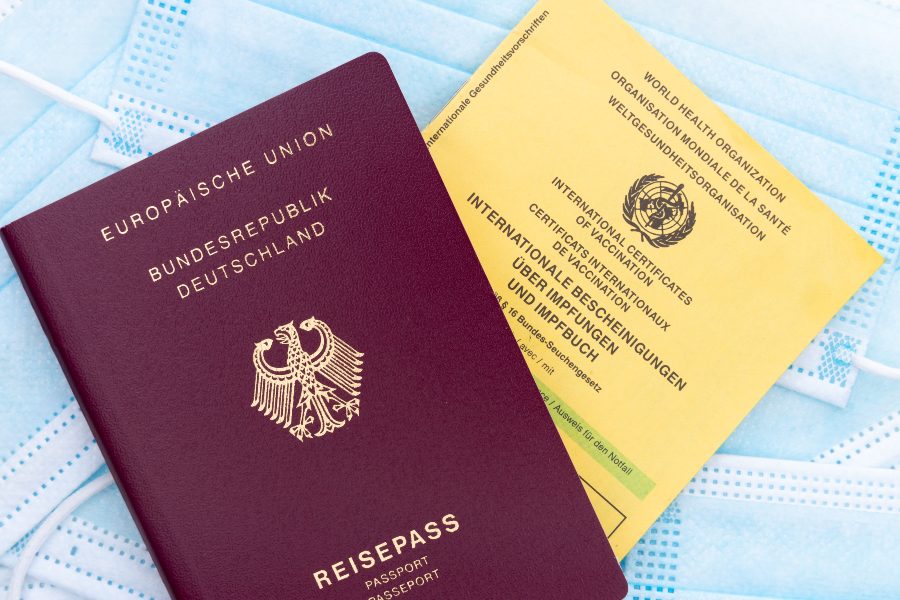German citizenship holds a significant allure for many, largely because of the diverse benefits it offers. In this comprehensive guide, we delve into the details of the new dual citizenship law in Germany. Through this discussion, we’ll address five prevalent inquiries associated with German citizenship.
Who Can Apply For German Citizenship According To The New Dual Citizenship Law In Germany?
The criteria for German citizenship eligibility are clearly laid out by German legal standards. Key among these provisions is a clause that caters to former German citizens. Specifically, if they had their citizenship stripped, denied, or if they willingly gave it up due to religious, political, or racial persecutions during the Nazi regime from 1933 to 1945, they are allowed to reclaim said citizenship. Furthermore, it’s not just the direct victims; their children, grandchildren, great-grandchildren, and sometimes even descendants as far down as the fifth generation can also claim this European passport.
But what about other avenues to gain German citizenship? For instance, what happens if one marries a German national or if one has lived in Germany for a long duration? There are indeed other circumstances that might pave the way for gaining German citizenship. These include citizenship after marrying a German, citizenship based on prolonged residence, and in particular conditions, if someone is born outside of wedlock or if they have a parent with German citizenship but were born outside Germany. However, an essential thing to remember here is that in these situations, citizenship isn’t issued automatically. There are specific standards to be met. Take, for instance, the condition where citizenship is based on residence; it’s granted only if the individual has had German identification for a continuous span of 12 years.
What Is The Average Duration To Secure German Citizenship?
The pathway to obtaining German citizenship is not necessarily a swift one. How long does it usually take? The answer is that it varies. Each application is distinct, influenced by a myriad of factors, and the timeline alters based on each individual’s circumstances. This encompasses tasks like gathering the necessary documents, translating them where required, and acquiring approvals from the respective German bodies. On average, expect this journey to span around two years. That said, it’s crucial to realize that this is a ballpark figure; the actual duration could be shorter or longer since every case carries its unique elements regarding the new dual citizenship law in Germany.
Does Marriage To A German Citizen Guarantee Citizenship?
While marrying someone from Germany does bring forth the potential for acquiring German citizenship, the process isn’t straightforward. Historically, simply tying the knot with a German national ensured instant citizenship. However, post-1970, the laws evolved. Now, while the act of marrying a German doesn’t immediately grant citizenship, it does pave a smoother road towards naturalization. What does this mean in practical terms? If you are wedded to a German citizen and you reside outside Germany, you would only be eligible for citizenship if you meet specific German legal criteria.
Let’s delve deeper into this. Say you’re considering citizenship due to your marital bond, especially in immigration scenarios: to qualify, you would need to have legally shared a residence with your German spouse for no less than three years. Furthermore, during your citizenship application, you should either be married or be in a recognized partnership.
Is Dual Citizenship Allowed Under The New Dual Citizenship Law In Germany?
Historically, Germany’s stance on dual citizenship was quite strict. If someone wished to become a German citizen, they had to surrender their existing foreign citizenship. This landscape has since shifted. The legal amendments made in Germany mean that if you’re eligible for German citizenship, you’re no longer forced to forfeit your existing citizenship. This change, in essence, means individuals can now proudly hold both German and Israeli passports concurrently.
Why Is German Citizenship Highly Sought After?
So, what’s the allure behind the new dual citizenship law in Germany? It’s the myriad rights and advantages that German citizenship bestows upon its holders:
- Travel Freedom: One of the paramount benefits is the ease of movement. German citizens can effortlessly traverse between European Union nations and also experience simplified bureaucratic processes when venturing into various global destinations. A case in point: German passport holders can enter countries like the USA or Australia without the usual visa hassles.
- Academic Opportunities: Those bestowed with German citizenship are in a privileged position to enroll in some of Europe’s most illustrious academic institutions, sometimes even with the perk of full or partial educational subsidies.
- Residential Rights: If you’re a German citizen, the entire European Union becomes your potential home, devoid of any special residential permits.
- Ample Job Prospects: Not only does German citizenship open doors to a plethora of job opportunities in Europe’s most prosperous nations, but it also offers a wealth of other financial advantages. This includes aspects like obtaining mortgages, investing, asset acquisition, and even tax benefits when initiating a new business venture.
To summarize, German citizenship is akin to holding a golden ticket. It unlocks a vast spectrum of opportunities, be it in employment, academia, or leisure. If you find yourself eligible for German citizenship, acting on this right without delay could be a game-changer. For any queries or clarifications on your eligibility regarding the new dual citizenship law in Germany, don’t hesitate to contact us.





















